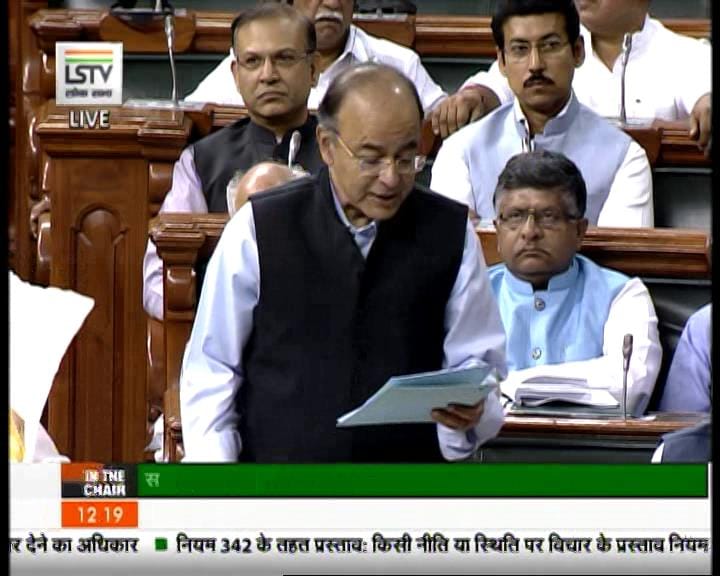8 years ago
Four Bills related to the Goods and Services Tax or GST were debated in the Lok Sabha or lower house of Parliament today, as the government pushes to meet a July 1 launch date for the unified tax regime that subsumes a slew of indirect taxes at the Centre and in states. Seven hours were allotted for today's debate, which began at noon, with union minister Arun Jaitley speaking first. For the Congress, former union minister M Veerappa Moily was the first speaker. The government emphasised that it wanted the GST bills to be passed in Parliament with the consensus of all parties as was witnessed in August last year when a bill to amend the Constitution was passed to facilitate the launch of GST. The Congress said the bills in their current form are "not acceptable" and its speakers today raised their concerns and demanded changes. The party's main demand reportedly was a flat GST rate rather than a four-slab structure. The bills being debated today were the Central GST bill, the Integrated GST bill, the Union Territories GST bill and the compensation law. Once these get Parliament's nod, a state GST bill will be presented in state assemblies for their approval.
Here are the highlights from the GST debate in Lok Sabha:
Lok Sabha all four GST Bills - Central GST bill, the Integrated GST bill, the Union Territories GST bill and the compensation law.
Arun Jaitley addressing Lok Sabha
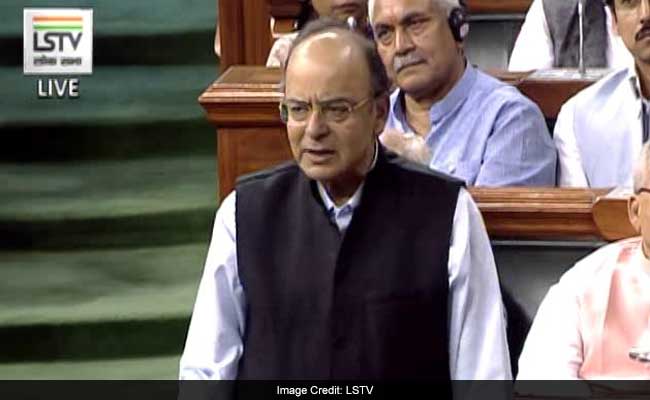
Finance Minister Arun Jaitley: A person today has to go to multiple assessors. The nature of economic activity is changing.
A lot of economic resource is lost when trucks are kept waiting outside states. There is no free flow of goods and services in the country.
The object of the GST was can we have one tax with one assessing officer.
It should become a more efficient tax, which is not easy to breach, so compliance is higher.
To bring a simple system, an amendment was needed to the constitutional framework.
In division of power there was no grey area. The GST created the grey area. It would be one tax, centre and states would merge their tax.
In the process we have created India's first federal decision making body.
Also, goods will become slightly cheaper as these taxes have cascading effect when they go.
When idea of GST was created, centre and states pooled their sovereignty in the panel. If states make one or two changes, we will have 32 different laws and can forget GST.
Article 246 is there will be a GST which will be imposed by centre and states.
Congress leader Veerappa Moily: Who empowered the GST council? We want to know. There may be many repercussions.
Finance Minister Arun Jaitley: The GST council has the power under Article 279 A to make a recommendation. On basis of that recommendation, this parliament and legislatures, under 246 A, get the power to frame those laws.
Let there not be any confusion.
There are many commodities which will be zero rated - especially the food items. And if we had decided on a flat 15 per cent, then they would have been charged at that.
Then there are some items which are used by the poor. The centre and the state levy very minimal tax so they either should be taxed at five per cent or zero per cent.
You cant tax hawai chappals and BMWs and baby food at the same rate.
We have to see which section of society uses it. So that's why there cant be a flat slab.
For one commodity, there will be one rate in the country. But you have to have separate rates for a BMW and a hawai chappal else it will be a regressive tax.
All sin products or products harmful for health will be taxed at 28 per cent and the difference from current rate will go to compensation fund. This is one of the few indirect cesses which will remain for a transient phase of five years.
During the UPA, there was no consensus and you thought it was only on political grounds. But there, it was manufacturing states which called for compensation and the absence of that was a deal-breaker.
When we finally brought the compensation package, states started coming around.
Again you raised the question, why was it a Money Bill?
I dare anyone, provide me an example since the enactment of the constitution in 1950. Provide me an instance of a law imposing a tax and providing a machinery for collecting that tax be anything but a money bill. There is no example when such a bill was not a money bill.
Some members had a problem against the anti-profiteering clause. It says no one can benefit from the tax difference. It means if you get a tax rebate, you must pass it on to the consumer.
The decisions we can reach a consensus on we are taking those up, not going for vote.
I'm sure a few years later, even the ones which we don't agree on can be brought under the GST.
(On Veerappa Moily's query on impact on agriculture sector) Agricultural production is going to be zero-rated, where is the confusion?
Are you saying that 28 states including eight finance ministers from your party have conspired to harass one section?
Broadly, these are some of the important questions raised.
As I said, the council is going to be a permanent body. We have made sure all decisions will be taken by consensus.

Finance Minister Arun Jaitley: A person today has to go to multiple assessors. The nature of economic activity is changing.
A lot of economic resource is lost when trucks are kept waiting outside states. There is no free flow of goods and services in the country.
The object of the GST was can we have one tax with one assessing officer.
It should become a more efficient tax, which is not easy to breach, so compliance is higher.
To bring a simple system, an amendment was needed to the constitutional framework.
In division of power there was no grey area. The GST created the grey area. It would be one tax, centre and states would merge their tax.
In the process we have created India's first federal decision making body.
Also, goods will become slightly cheaper as these taxes have cascading effect when they go.
When idea of GST was created, centre and states pooled their sovereignty in the panel. If states make one or two changes, we will have 32 different laws and can forget GST.
Article 246 is there will be a GST which will be imposed by centre and states.
Congress leader Veerappa Moily: Who empowered the GST council? We want to know. There may be many repercussions.
Finance Minister Arun Jaitley: The GST council has the power under Article 279 A to make a recommendation. On basis of that recommendation, this parliament and legislatures, under 246 A, get the power to frame those laws.
Let there not be any confusion.
There are many commodities which will be zero rated - especially the food items. And if we had decided on a flat 15 per cent, then they would have been charged at that.
Then there are some items which are used by the poor. The centre and the state levy very minimal tax so they either should be taxed at five per cent or zero per cent.
You cant tax hawai chappals and BMWs and baby food at the same rate.
We have to see which section of society uses it. So that's why there cant be a flat slab.
For one commodity, there will be one rate in the country. But you have to have separate rates for a BMW and a hawai chappal else it will be a regressive tax.
All sin products or products harmful for health will be taxed at 28 per cent and the difference from current rate will go to compensation fund. This is one of the few indirect cesses which will remain for a transient phase of five years.
During the UPA, there was no consensus and you thought it was only on political grounds. But there, it was manufacturing states which called for compensation and the absence of that was a deal-breaker.
When we finally brought the compensation package, states started coming around.
Again you raised the question, why was it a Money Bill?
I dare anyone, provide me an example since the enactment of the constitution in 1950. Provide me an instance of a law imposing a tax and providing a machinery for collecting that tax be anything but a money bill. There is no example when such a bill was not a money bill.
Some members had a problem against the anti-profiteering clause. It says no one can benefit from the tax difference. It means if you get a tax rebate, you must pass it on to the consumer.
The decisions we can reach a consensus on we are taking those up, not going for vote.
I'm sure a few years later, even the ones which we don't agree on can be brought under the GST.
(On Veerappa Moily's query on impact on agriculture sector) Agricultural production is going to be zero-rated, where is the confusion?
Are you saying that 28 states including eight finance ministers from your party have conspired to harass one section?
Broadly, these are some of the important questions raised.
As I said, the council is going to be a permanent body. We have made sure all decisions will be taken by consensus.
Rajya Sabha votes on Amendments to Finance Bill
Finance Minister Arun Jaitley: If firewalls are to be breached they can happen anywhere. Let us assume there is no Aadhaar but some information in some network gets hacked because of the technology.
It was an immature behaviour on behalf of the person who went there
(on MS Dhoni incident).
There are provisions in the Aadhaar legislation that can allow them to be prosecuted. For these reasons, it does not mean we will go back to obsolete technology or methods of data collection.
Technology is always a learning experience.
It was an immature behaviour on behalf of the person who went there
(on MS Dhoni incident).
There are provisions in the Aadhaar legislation that can allow them to be prosecuted. For these reasons, it does not mean we will go back to obsolete technology or methods of data collection.
Technology is always a learning experience.
Finance Minister Arun Jaitley: The Pentagon got hacked even without the Aadhaar being there. So, hacking doesn't happen because of Aadhaar.
Former Finance Minister P Chidambaram: I appeal to the FM to not trivialise the question. If you don't want to answer, say so.
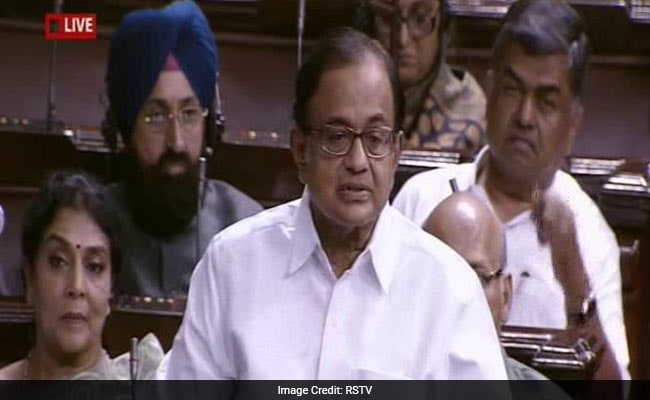
Former Finance Minister P Chidambaram: I appeal to the FM to not trivialise the question. If you don't want to answer, say so.

Former Finance Minister P Chidambaram: Aadhaar was an instrument to extend services, benefits and subsidies. It was never intended to be tagged to I-T and bank accounts. But if your government has taken that call so be it. Larger questions is how will you protect the privacy of transactions, facts, materials. The Pentagon is being hacked - what is the guarantee you can prevent hacking of Aadhaar. MS Dhoni's wife has complained his Aadhaar number is being made public.
Finance Minister Arun Jaitley: (ON AADHAAR) Yes, we had concerns but they were duly answered. We accepted Aadhaar was a great initiative and expanded on it. Why should we not allow this technology be utilised for larger public purpose?
Finance Minister Arun Jaitley: There have been cases where hospitals that took benefits as charities, turned for-profit years later and charged lakhs for treatment. Someone who gets land for religious purpose and builds a commercial building on it, should it be exempt for I-T? Whats wrong in having one river water tribunal which can decide on all disputes? Despite best efforts of CJIs we cannot find judges for tribunals.
Congress leader Kapil Sibal: The charitable organisations that fund you are ones you have never searched.
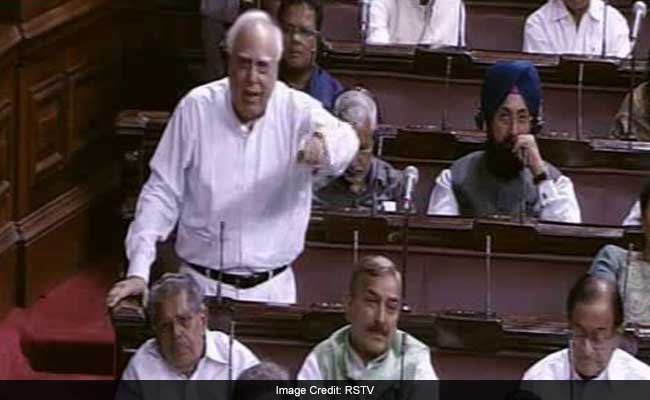

Finance Minister Arun Jaitley: There are two precedents when this was done in this manner. For clean funding should we restrict donations, or expand? That's why changes in FCRA.All parties should be with us, on changing colour of money coming into politics. Why should charitable organisations be under the I-T Act? Because isn't the I-T entitled to see if their entitlements are used for charitable purposes?
Finance Minister Arun Jaitley defends the finance bill
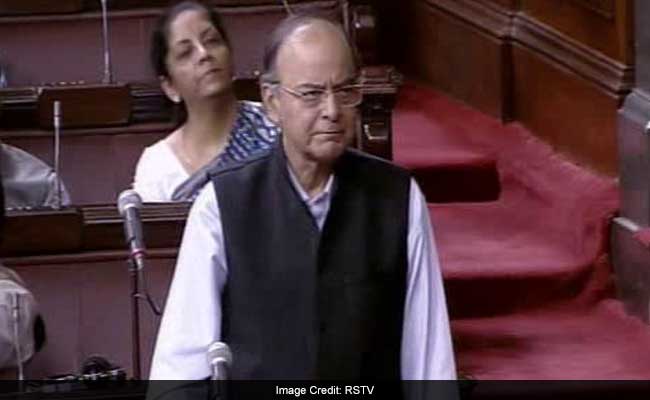
Finance Minister Arun Jaitley: The whole institution of electoral bonds has been conceived for transparency. In fact, the current arrangement inherently gives advantage to the ruling party.Whenever such schemes have been formed in the past, they have been formed after a bipartisan discussion. Request opposition to adopt a more positive approach
Senior Congress leader Anand Sharma: If your intentions are such, why couldn't you have brought comprehensive electoral reforms. Why are you bringing it through finance bill?

Finance Minister Arun Jaitley: The whole institution of electoral bonds has been conceived for transparency. In fact, the current arrangement inherently gives advantage to the ruling party.Whenever such schemes have been formed in the past, they have been formed after a bipartisan discussion. Request opposition to adopt a more positive approach
Senior Congress leader Anand Sharma: If your intentions are such, why couldn't you have brought comprehensive electoral reforms. Why are you bringing it through finance bill?
Some goods which are harmful or are luxury items, are taxed higher. The difference from these will go to the compensation fund as a compensation cess, Mr Jaitley says in Lok Sabha
Speaking about tax slabs, Mr Jaitley says: Right now we multiple tax brackets. The first one is zero, which will include basic food items. The other tax slabs are 5%, 12/18%, and 28%
In the GST council, 29 states, 2 union territories and the centre had representatives. This council was tasked to recommend the system, process of taxation: Arun Jaitley
Addressing the members in the House, Mr Jaitley says, this amendment we have moved is different We are now creating a jurisdiction simultaneously at the centre and the state.
The goal was it would facilitate better movement of goods and services, and the state and centre would divide the revenues, Mr Jaitley says.
There are four laws, they are being taken together because their subject matter is same. The House has already passed the constitutional amendment related to this. Earlier, the centre levied some taxes and state levied some others. There has been a discussion for a while to unify these taxes: Arun Jaitley
Prime Minister Narendra Modi, Congress President Sonia Gandhi and Congress Vice President Rahul Gandhi all present in Lok Sabha during debate on crucial GST bills.
Finance Minister stresses upon a bid to avoid centre-state clashes.
Arun Jaitley in Lok Sabha: Both the parliament and state legislatures will have right to levy GST
And how they will do that is what we are working out so that there is no conflict and we can maintain the federal structure.
There are four laws, they are being taken together because their subject matter is same: @arunjaitley on #GSThttps://t.co/hMlRpgak2y pic.twitter.com/bg3qJcmTKc
- NDTV (@ndtv) March 29, 2017
Finace Minister Jaitley says, the goal was it would facilitate better movement of goods and services. The state and centre would divide the revenues.
Prime Minister Narendra Modi present at Lok Sabha for the GST debate.
#BudgetSession | PM @narendramodi in Lok Sabha as Finance Minister @arunjaitley opens #GST debate in Parliamenthttps://t.co/hMlRpgak2y pic.twitter.com/ioKXr6lzQU
- NDTV (@ndtv) March 29, 2017
Arun Jailey: The House has already passed the constitutional amendment related to this. Earlier, the centre levied some taxes and state levied some others. There has been a discussion for a while to unify these taxes
Arun Jaitley in Lok Sabha: I rise to move (4 GST Bills)
Arun Jaitley begins to speak on GST in Lok Sabha.
#BudgetSession | Confident of consensus in House: Finance Minister @arunjaitley to NDTV on #GST https://t.co/5RmGDH8uw0 pic.twitter.com/b1bVlTDxJf
- NDTV (@ndtv) March 29, 2017
Implementing GST Will Be Serious Test For India: Foreign Media – NDTV Profit
Read Bloomberg's report on GST implementation.
Read Bloomberg's report on GST implementation.
Arun Jaitley to NDTV: The legislation jointly drafted by centre and states. They have to approved by both. The administration of law has to federal.
Arun Jaitley to NDTV: I dont think there will neither of loss not inflation. The rate of taxation will be cheaper. And the free flow of goods and services always helps the economy.
Arun Jaitley to NDTV: I am reasonably hopeful (of a Jul 1 rollout) Unless something unforeseen happens, we will be able to meet the target.
Finance Minister Arun Jaitley speaks to NDTV before the big GST debate in Lok Sabha. Says, he his hopeful to meet the July 1 deadline.
Government asks speaker to waive off zero hour to facilitate GST debate.
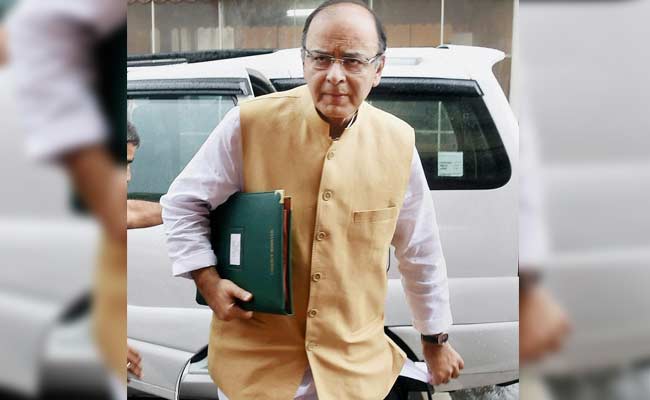 After 7-Hour GST Debate In Lok Sabha Today, 250 Clauses Will Be Put To Vote: 10 Facts
After 7-Hour GST Debate In Lok Sabha Today, 250 Clauses Will Be Put To Vote: 10 FactsFour Bills related to the Goods and Services Tax or GST will be debated in the Lok Sabha or lower house of Parliament today, as the government pushes to meet a July 1 launch date for the unified tax regime that subsumes a slew of indirect taxes at the centre and in states. Seven hours have been allotted for today's debate, which is likely to begin at noon today, with union minister Arun Jaitley speaking first. For the Congress, former union minister M Veerappa Moily will be first speaker.

